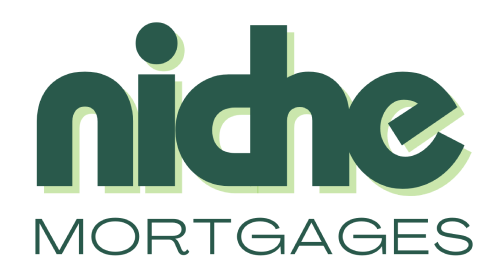Deciding whether to buy a home or continue renting is one of the biggest financial choices you’ll make. Both options come with their advantages and challenges, and the right decision depends on your financial situation, lifestyle, and long-term goals. From a mortgage perspective, buying a home can be a great investment, but renting may offer flexibility and fewer financial responsibilities. Let’s explore the key factors to help you determine whether buying or renting is the best choice for you.
Understanding the Costs of Buying vs. Renting
The Costs of Buying a Home
When purchasing a home, from mortgage perspective you’ll need to consider several upfront and long-term costs. These include:
- Down Payment – In Canada, the minimum down payment is 5% for homes under $500,000, but a larger down payment can lower your mortgage payments.
- Mortgage Payments – A fixed or variable monthly payment that includes the principal and interest.
- Property Taxes – An annual cost based on your home’s assessed value.
- Home Insurance – Required to protect your home and belongings.
- Closing Costs – Legal fees, land transfer taxes, and other costs typically range from 1.5% to 4% of the home’s purchase price.
- Maintenance and Repairs – As a homeowner, you are responsible for all upkeep, renovations, and unexpected repairs.
The Costs of Renting
Renting typically involves fewer upfront expenses, but it does come with recurring costs:
- Monthly Rent – Payments are typically lower than mortgage payments but don’t build equity.
- Renter’s Insurance – Covers personal belongings in case of damage or theft.
- Security Deposit – Typically one month’s rent, refundable if no damage occurs.
- Utilities and Fees – Some rentals include utilities, while others require tenants to pay separately.
While renting may seem more affordable in the short term, it does not offer the same financial benefits as homeownership over time.
Building Equity A Key Advantage of Buying
One of the biggest financial advantages of buying a home is equity—the portion of your home that you own outright. With every mortgage payment, part of your money goes toward reducing your loan balance, increasing your ownership stake in the property.
For example, if you purchase a home for $500,000 and put down 10% ($50,000), you already own that portion. As you continue paying your mortgage, your equity grows, and if your home’s value increases, your investment becomes even more valuable.
Renters, on the other hand, make monthly payments that go toward their landlord’s equity rather than their own.
Flexibility vs. Stability
Why Renting May Be a Better Choice
Renting provides flexibility, making it a better option for people who:
- Are not ready for a long-term commitment – If you plan to move frequently for work or lifestyle reasons, renting offers mobility.
- Want fewer maintenance responsibilities – Homeownership requires upkeep, while renters can rely on their landlord for repairs.
- Prefer predictable expenses – Rent payments are set for the lease term, while homeownership can come with unexpected repair costs.
Why Buying May Be a Better Choice From mortgage perspective
Purchasing a home provides long-term stability, especially for those who:
- Plan to stay in one place for several years – The longer you own your home, the more financially beneficial it becomes.
- Want to build wealth through real estate – Property values tend to appreciate over time, making homeownership a solid investment.
- Prefer control over their living space – As a homeowner, you can renovate and personalize your home as you see fit.
How Mortgage Rates Impact the Decision
Mortgage rates play a crucial role in determining whether buying is a smart financial move. When interest rates are low, homeownership becomes more affordable, as mortgage payments remain manageable. However, if rates are high, renting might be the better short-term choice while waiting for more favorable market conditions.
Use a mortgage calculator to estimate what your monthly payments would be at different interest rates.
Breaking Down the Financial Benefits Over Time
In many cases, homeownership is more cost-effective than renting in the long run. If you pay $2,500 in rent per month for five years, that’s $150,000 spent on housing with no return on investment. If you had a mortgage instead, a significant portion of that amount would go toward building equity.
That said, homeownership is a long-term commitment that requires careful financial planning. If you are not financially prepared, rushing into buying a home could lead to stress and potential financial difficulties.
Is It Better to Buy or Rent? The Answer Depends on You
There is no one-size-fits-all answer to the rent vs. buy debate. It depends on:
- Your financial readiness – Do you have a stable income, good credit, and savings for a down payment?
- Your lifestyle – Do you plan to stay in one place for at least five years?
- Your long-term goals – Are you looking for financial stability and investment opportunities?
If you are unsure, working with a mortgage expert can help you evaluate your options based on your financial situation and market conditions.
Need Help Deciding Between Renting and Buying?
Renting offers flexibility and fewer upfront costs, but it does not build equity. Buying a home requires a financial commitment, but it provides stability and long-term investment benefits. The right choice depends on your financial goals, lifestyle, and current market conditions. From mortgage perspective, whenever you are ready our mortgage expert will help you!
If you’re considering homeownership but unsure if it’s the right time, Contact Niche Mortgages today. Our experts can guide you through the mortgage process and help you determine the best financial decision for your future.
About the Author

Jonathan Yien
Jonathan Yien is a seasoned mortgage broker at DLC Clear Trust Mortgages with a rich background in financial advising from his time at TD Canada Trust. He is dedicated to helping clients achieve their financial and homeownership goals.

